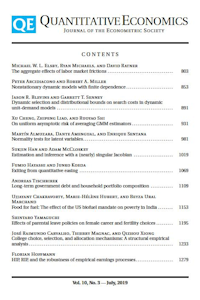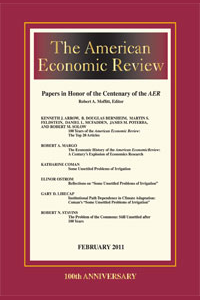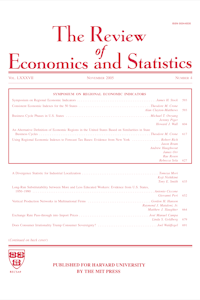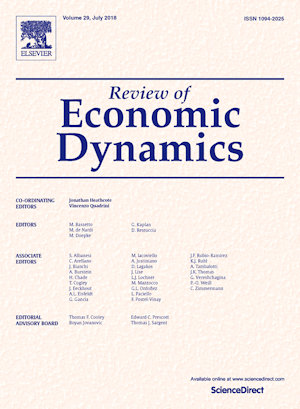
Fruehwirth, J. C.
Identifying peer achievement spillovers: implications for desegregation and the achievement gap
Quantitative Economics
Vol. 4(1) pp. 85-124 (2013)
Abstract: This paper develops a new approach to identifying peer achievement spillovers in the context of an equilibrium model of student e ort choices. By focusing on the ef- fect of contemporaneous peer achievement, this framework integrates previously unex- plored types of heterogeneity in peer spillovers in the achievement production context. Applying the strategy to North Carolina public elementary school students, I nd peer achievement spillovers exist primarily within race-based reference groups, and the magnitude of these spillovers diminishes across the percentiles of the achievement distribution. Simulations highlight the importance of peer achievement spillovers for determining the distributional e ects of desegregation relative to exible reduced form speci cations that focus entirely on predetermined peer characteristics.
JEL Codes: I20, I21, J15
Author links:
Publisher's Link: http://onlinelibrary.wiley.com/doi/10.3982/QE93/abstract ![]()



